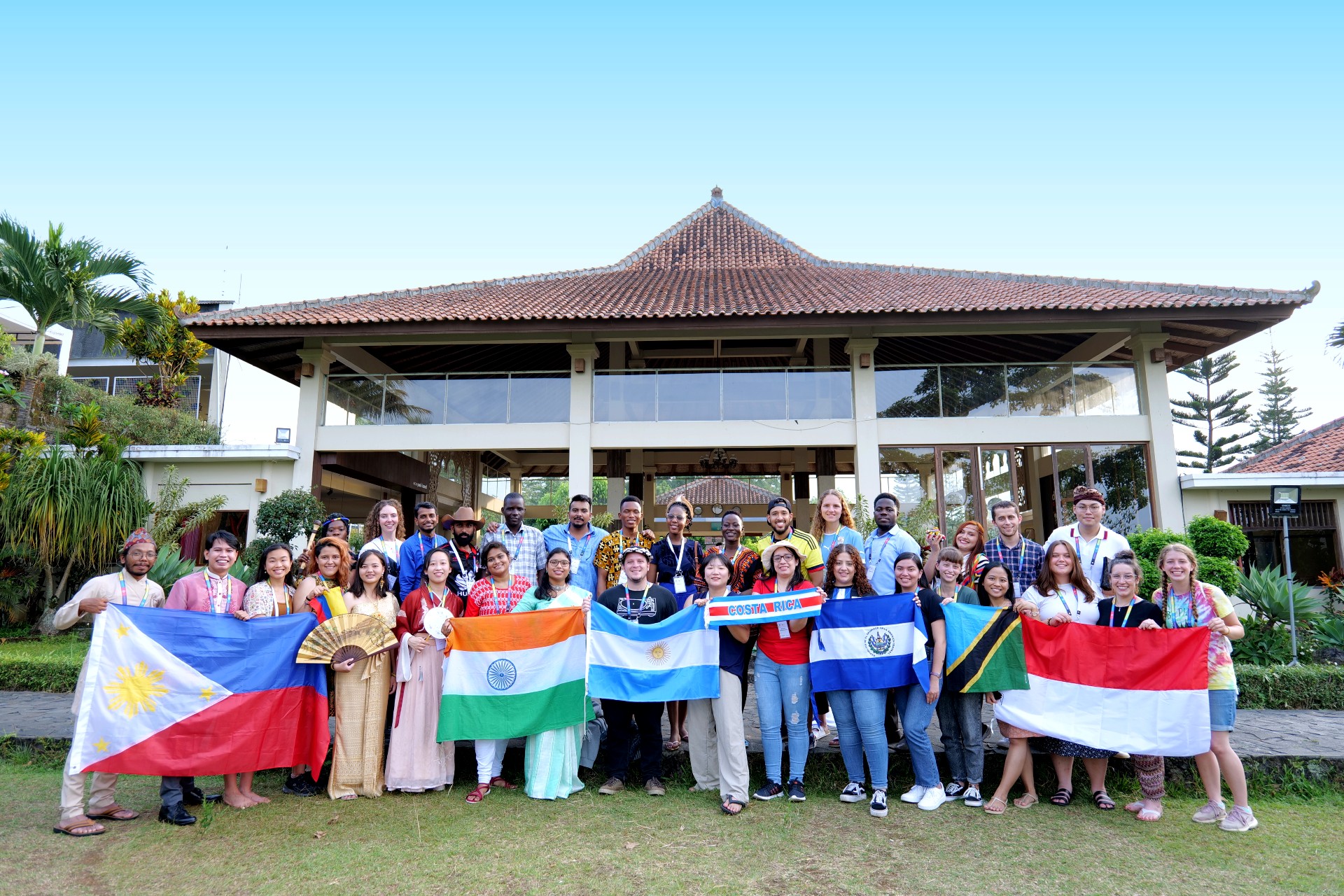Following Jesus together across barriers
Mennonite World Conference (MWC) global Assemblies are the equivalent of a Sunday meeting at a local congregation.
Through the liturgy, we declare the sovereignty of Christ in our global church, challenging nationalism, racism and other false ideologies that claim our obedience and following.
Through teaching, workshops and preaching, we affirm our Anabaptist identity and facilitate character building in our churches by exposing them to different perspectives and biblical emphases shaped by the context of many different cultures.
In informal activities, we appreciate the importance of each individual and their community, share the gifts we have received and mutually enrich ourselves with the new relationships that arise.
Through moments of prayer, we support those facing persecution, violence, extreme poverty and natural disasters.
We discover that we are not alone, that we are a living organism and that we are part of the body of Christ.
These are just a few reasons why MWC Assemblies have been an essential part of our global community for decades. In 2022, we celebrated the second world Assembly in Asia and the 17th since the inception of MWC in 1925.
When we started planning Assembly 17, we never imagined the magnitude of barriers we would have to cross. Indonesia 2022 will go down in history as one of the most complex and challenging events we have ever developed. In addition to differences in culture, social class and theological perspectives, some barriers we had to overcome included the following:
- Finances: Moving the event from 2021 to 2022 due to the pandemic resulted in substantial financial costs.
- Health: A significant number of people had to quarantine – myself included – due to COVID-19 and other viruses. That prevented the full participation of many attendees.
- Technology: With this being the first officially hybrid Assembly, many activities were planned to facilitate online participation. However, technical failures hampered the live broadcast and prevented reception of simultaneous interpretation on site, despite many tests and the apparent certainty of the experts that the technology would not fail.
The leadership of the Assembly prepared for seven years to carry out a successful event. The evaluation that we develop after the Assembly and the participants’ experience will reveal the event’s success level. However, as a church, it is worth remembering that we are called to have fruitful events more than just successful events.
It is in the sense of fruit that we can appreciate the value of the Assembly in Indonesia.
Thanks to varied barriers, disciples of Christ from many nations learned to practice patience with one another. People from many different cultures mobilized to work in unity and seek the welfare of those sick and needed support. The love and concern for others, in many cases, were evident. Misunderstandings and unexpected conflicts led us to practice the ministry of reconciliation in our midst. We discover again the importance of vulnerability and the confession of faults committed. We understood how crucial it is to humbly ask for and receive forgiveness.
Consequently, the Assembly in 2022 deepened the intercultural relationship of many members of our churches and facilitated unity amid diversity. Admittedly, Assembly 17 may not have been the most successful in human parameters that measure the quality of events. Still, it has been one of the most fruitful to grow in our call to be a global communion in the Anabaptist tradition.
—César García, MWC general secretary, originally from Colombia, lives in Kitchener, Ontario, Canada.
